Related Research Articles

Ludwig Quidde was a German politician and pacifist who is mainly remembered today for his acerbic criticism of German Emperor Wilhelm II. Quidde's long career spanned four different eras of German history: Otto von Bismarck, the Hohenzollern Empire under Wilhelm II (1888–1918), the Weimar Republic (1918–1933); and Nazi Germany. In 1927, Quidde was awarded the Nobel Peace Prize.

Emil Erich Kästner was a German writer, poet, screenwriter and satirist, known primarily for his humorous, socially astute poems and for children's books including Emil and the Detectives and The Parent Trap. He received the international Hans Christian Andersen Medal in 1960 for his autobiography Als ich ein kleiner Junge war. He was nominated for the Nobel Prize in Literature in six separate years.
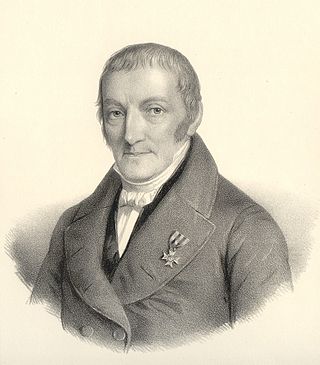
Karl Ludwig von Haller was a Swiss jurist, statesman and political philosopher. He was the author of Restauration der Staatswissenschaft, a book which gave its namesake to the Restoration period after the Congress of Vienna, and which Georg Wilhelm Friedrich Hegel strongly criticized in §258 of Elements of the Philosophy of Right.
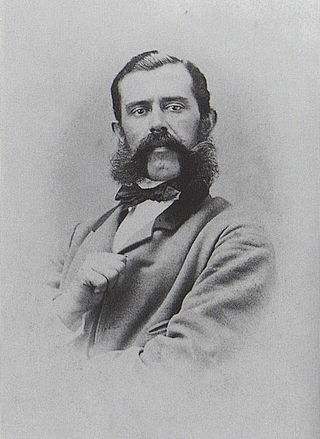
Felix Philipp Kanitz was an Austro-Hungarian naturalist, geographer, ethnographer, archaeologist, painter and author of travel notes, of Jewish heritage.

Lőwy Hevesi Lajos, or Ludwig Hevesi was a Hungarian journalist and writer.

Meyer Kayserling was a German rabbi and historian.

Max Herbert Eulenberg (1876–1949), was a German poet and author born in Cologne-Mülheim, Germany. He was married from 1904 to Hedda Eulenberg.
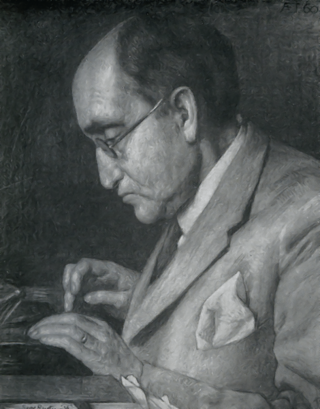
Andreas Latzko was an Austro-Hungarian pacifist of Jewish origin, a novelist and biographer.
Eduard Heyck was a German cultural historian, editor, writer and poet.

Franziska Freifrauvon Reitzenstein was a German novelist.

Oliver Jens Schmitt is a professor of South-East European history at Vienna University since 2005. He is a member of the Austrian Academy of Sciences.

Carry Hauser, born Carl Maria Hauser, was an Austrian painter, stage set designer and poet.
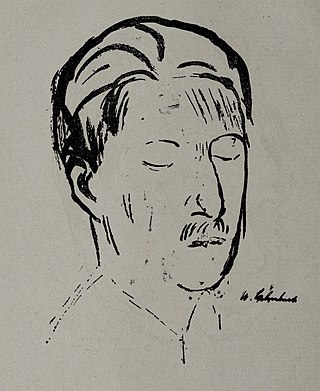
Ludwig Rubiner was a German poet, literary critic and essayist, generally seen as a representative of the expressionist movement that originated in Germany at the beginning of the 20th century. His most important works include a manifesto entitled, "Der Dichter greift in die Politik" and a stage-drama, "Die Gewaltlosen", which he dedicated to "dem Kameraden, meiner Frau Frida". His "Kriminalsonetten" have even led to his being seen by some as a prophet of Dadaism.

Renate A. Tobies is a German mathematician and historian of mathematics known for her biographies of Felix Klein and Iris Runge.
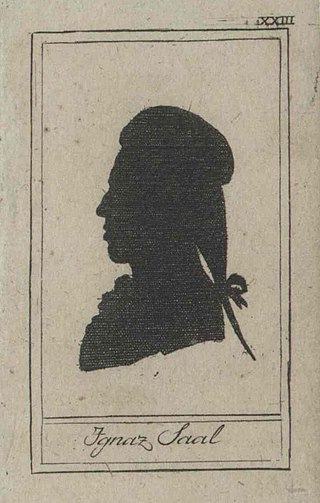
Ignaz Saal was an operatic bass and comedian. He was for decades a member of the Imperial Court Theatre in Vienna. Saal performed the bass parts in the world premieres of Haydn's oratorios Die Schöpfung and Die Jahreszeiten, and appeared as Don Fernando in the premiere of Beethovens Fidelio on 23 May 1814 at the court theatre.

Carl Friedrich Clemens Weinmüller was an operatic bass and theatre director. A bass with the Imperial Ccourt Opera in Vienna, he is known for performing Rocco in the premiere of Beethoven's Fidelio.
Louise Karolina Müller, néeLudovika Müller was an actress and operatic soprano. She appeared mostly in soubrette roles, but is known for performing as Marzelline at the premiere of Beethoven's Fidelio on 20 November 1805.
Wolfgang Schultz was an Austrian philosopher who served as Professor and Chair of Philosophy at the Ludwig Maximilian University of Munich.

Ludewig Gottlieb Carl Nauwerck was a German journalist, orientalist and member of the Frankfurt Parliament.
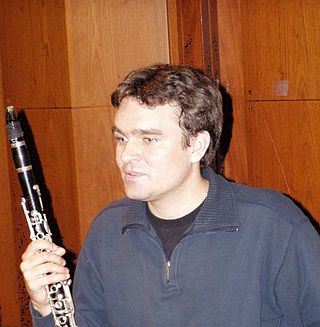
Kantate (Cantata) for soli, choir, organ and orchestra is a work by German composer Jörg Widmann. It was composed in 2023, on the occasion of the 300th anniversary of Johann Sebastian Bach taking office as Thomaskantor in Leipzig. It was premiered on 8 June 2023 by Thomaskantor Andreas Reize conducting Gewandhausorchester Leipzig and Thomanerchor at Thomaskirche.
References
- ↑ "Bauer, Ludwig, 1876-1935". VIAF. Retrieved 22 May 2024.
- ↑ Milton Bronner, 'World Powers are all held as Peace Menaces: Author declares that Hoover motive was selfish in moratorium proposal', The Tuscaloo News , 18 October 1931.
- ↑ Ethel Snowden, A Political Pilgrim in Europe, pp.52, 132
- ↑ William L. Langer, 'Some Recent Books on International Relations', Foreign Affairs, Vol. 10. No. 4 (July 1932)
- ↑ Einstein, The World As I See It, Book Tree, 2007, p.61